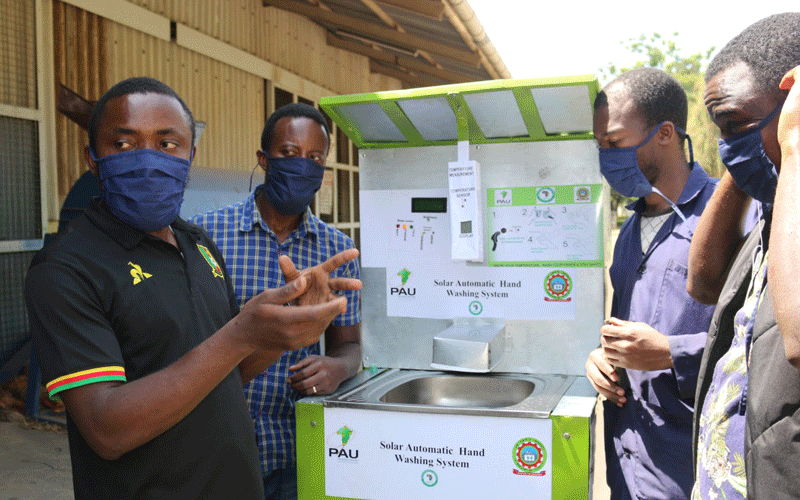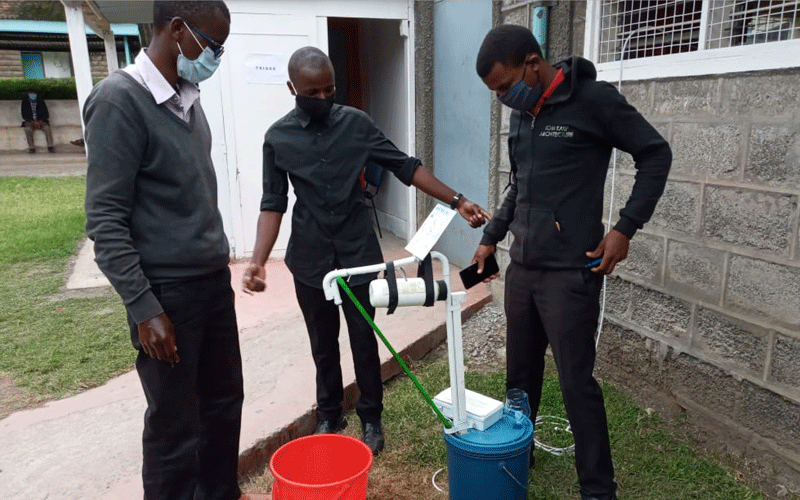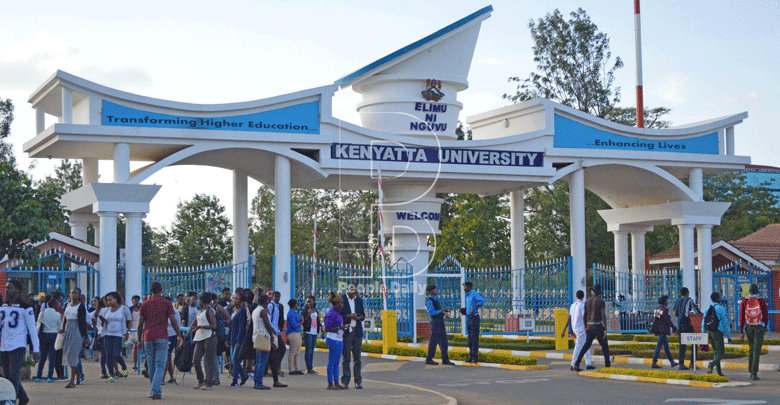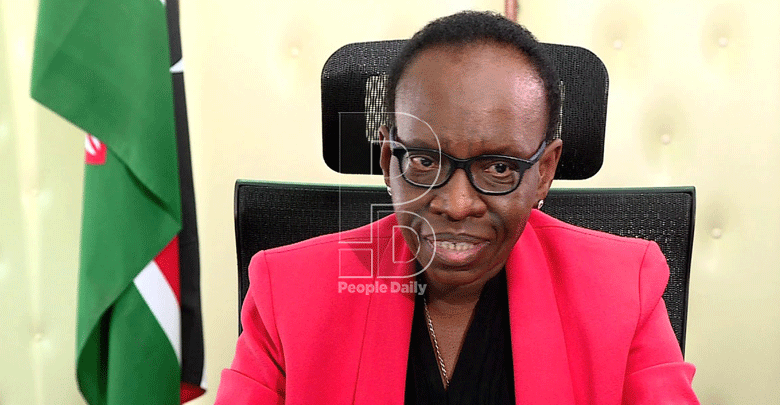Students ramp up Covid-19 related innovations

An advanced version of the automatic solar-powered hand washing machine, which is able to detect and alert relevant authorities of suspected cases of people with Covid-19 symptoms is now available.
The machine is an innovation by five postgraduate research students from the Pan African University Institute for Basic Sciences, Technology and Innovation (Pausti) hosted at Jomo Kenyatta University of Agriculture and Technology (JKUAT).
The machine, a higher version of an earlier one fitted with censors that was able to dispense soap and water automatically without any physical contact, is able to send signals to authorities for mitigation and urgent action within seconds.
As Cameroonian Electrical Engineering PhD student majoring in Power Systems, Willy Tounsi, says, “This combination of technology will make it easier to keep track of all recorded temperatures, traffic flow, and as such, business outlets will be able to measure the number of customers received per day.”
Tounsi adds that the new advanced hand-washing unit is fitted with a temperature sensor, which is coded to send an SMS to the relevant authorities in case the user’s temperature is higher than normal.
He says the unit, powered by solar or battery, has a well-illustrated pictorial that primary school children can easily follow.
The innovation is also able to track the flow of people through recorded temperatures stored into a central database system that could be hosted on websites or servers depending on the users’ desire.
It has a sensor programmed to verify the temperatures of people who come to wash their hands at least twice before sending the alerts to avoid sending false data.
Other researchers behind the project are Filston Rukerandanga, a PhD Electrical Engineer (Telecommunication option) from Burundi, two Masters of Science students in Mechanical Engineering, Destine Mashava from Zimbabwe and Pauline Mwambe from Uganda, and Yves Jouontso from Cameroon (pursuing his Masters in Civil Engineering).

They are supervised by Prof George Nyakoe from JKUAT’s College of Engineering and Technology.
Another such innovation is from three undergraduate students from JKUAT’s Nakuru Campus who have also invented an automatic handwashing machine that is already in use at the Nakuru’s War Memorial Hospital.
Brian Ngugi Kamunyu, a fourth-year BSc Control and Instrumentation student, and Simon Kimani Muchiri, also a fourth-year BSc Analytical Chemistry student teamed up with Samuel Karanja Ng’ang’a, a BSc Industrial Biotechnology alumnus to come up with this innovation, which uses an actuator (component of a machine responsible for moving and controlling it) to dispense water and soap drawn from the bucket to the outlet.
Three stages
Kamunyu says they came up with their system, which uses both batteries or electricity, after seeing the need “to enable fellow Kenyans realise the efficacy of handwashing by facilitating them to adhere to the correct handwashing practices, especially during the Covid-19 pandemic as stipulated by the World Health Organisation.”
The machine operates in three stages; it dispenses water for wetting the hands, followed by soap for lathering, and it later allows 20 seconds for thorough scrubbing before finally, dispensing running water to flow to cleanse soap off the user’s hands.
The system, which can conveniently be used by the physically disabled, is also manually operated and economical, as it saves on water and soap used.
The project, which utilised locally available materials is proving useful in a wide spectrum of applications, including schools, hospitals, shopping malls, banks and supermarkets.
Vice Chancellor, Prof Victoria Wambui Ngumi, was thrilled by innovative ideas by both faculty and students.
“It is refreshing to see how dedicated young men and women are searching for solutions that will aid in combating the pandemic and beyond. We are all in it and must fight to eradicate the scourge,” she said.










